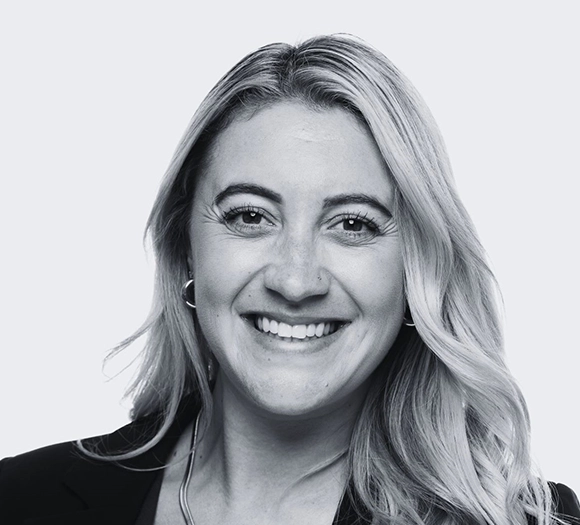7 Common Relapse Triggers in Addiction

Recovering from a substance addiction is a long process that requires perseverance, changing your habits, and changing your life. While cravings get better over time, you will have to learn with long-term side effects from the substance that can and will make it more likely for you to relapse. Relapse triggers can be found nearly anywhere, and learning to avoid or to manage them can help you to avoid backsliding and having to go back to rehab.
What Are Triggers
Triggers are emotional, physical, or mental events that ‘trigger’ a response that will eventually send you sliding back into active addiction. Triggers can be as simple as seeing the substance in front of you or as complex as going to a wedding and feeling the urge to celebrate, and eventually relapsing 2 months later.
While there are numerous triggers and your own triggers will change depending on your experiences and your addiction, some are more common than others.
7 Common Relapse Triggers
1. Stress – Stress is the most common relapse trigger and one of the most common indicators of an addiction. Avoiding, reducing, or learning to manage stress should be among your top priorities, especially as you first get clean or sober. Stress management is crucial to long-term success because life comes with an inherent amount of stress and avoidance will only create long-term issues. Mindfulness-based stress reduction (MBSR), Mindfulness, meditation, yoga, Tai Chi, and other breathing based exercises can help you to reduce stress and learn to manage it better. In some cases your rehabilitation therapy will help you with some of these tactics. You can also seek out a local mindfulness program on your own. Stress inhibits dopamine production, causes anxiety and depression, and creates a ‘low’ feeling, which many of us want to escape from. For that reason, we often to turn to drugs or alcohol as an escape.
2. Negative Emotions – Negative emotions like anger, grief, sadness, and loneliness are all triggers. Like stress, they reduce dopamine production in the brain, leaving you looking for anything to make you feel better. Most of us know that many people who feel bad will eat to make themselves feel better. Drug and alcohol use follows the same concept. The substance causes a rush of dopamine, which is a reward sensation that the brain craves. However, you cannot avoid negative emotions, so learning to manage and deal with them is important. Cognitive behavioral therapy will help, but you should also practice minimizing your exposure to these emotions. For example, talking with your friends and family about the importance of remaining positive and judging you on a day by day basis, working on creating positive interactions with others each day, and creating an outlet such as yoga, walking, swimming, or boxing can help you to manage negative emotions.
3. Locations – Physical locations can serve as a trigger, especially if they are locations where you previously used. However, triggers can be more complex than this. For example, if you were exposed to trauma such as an accident, abuse, injury, theft, or rape, returning to the site may be a trigger. Returning home to a negative environment, or one in which you previously had a negative experience could also be a trigger. Unfortunately, management and avoidance are the only two possible solutions to location-based triggers. In most cases, you should either avoid them or make controlled visits in between appointments with a therapist to ensure that you do not relapse.
4. People – Like locations, people can be intensely triggering. In some cases, the trigger will be as simple as a person handing you a substance, in others, it can be a person whom you associate intense negative emotions with. Work to identify people who might cause triggers, especially if you used with them, and then work to avoid them if you can.

5. Positive Events – While many people consider positive events as the opposite of a trigger, they can be very triggering. In most cases, a positive event such as new car, a new house, a promotion, a new job, or even a special day with a loved one can cause you to want to celebrate. As a recovering addict, drugs or alcohol will likely have changed your brain, temporarily reducing your ability to feel pleasure because your brain is accustomed to a much higher level of dopamine production or euphoria. Normal celebration can pale next to this at first as your brain readjusts, which can lead you to look to celebrate by using your substance ‘just one more time’.
6. Re-exposure – Re-exposure to drugs or alcohol can very easily cause relapse, but not necessarily right away. Seeing drugs or alcohol can cause an immediate relapse, because you want it, but it can also make it harder to walk away the next time you see it. Re-exposure is typically inevitable so you must learn management, but in most cases, you will work on avoidance for the first few months after you get clean or sober.
7. HALT – Hungry/Angry/Lonely/Tired is an acronym that describes a state of mind in which many people relapse. Each of these four conditions leaves you mentally open, drained, and more likely to relapse. This is in part because you look for something to make yourself feel better in each of these states, and in part because you care less about others when angry or lonely, which can lead to using for yourself. You also have to consider the theory of ego depletion, which says that the more tired you are, the less likely you are to use your willpower. Manage your energy, food intake, and positive interactions with others so that you avoid these states as much as possible.
While many people thing of triggers as something that happens that kicks off an immediate reaction, it rarely happens that way. Very few people visit a friend, see drugs, and immediately start using. Instead, the exposure to the trigger makes you start thinking about drugs or alcohol. In most cases, a relapse takes between 1 and 2 weeks between the time of exposure to the trigger and the actual relapse. In that time, you begin changing your behavior, may push away friends or stop talking to them, stop going to meetings, or otherwise make it easier to make the decision to use again. Recognizing this while it is happening and getting help can prevent a relapse, even if you’ve already been exposed to a trigger. If you are thinking about drugs or alcohol non-stop, you are on your way towards a relapse.
Triggers are very complex, and will change depending on your personal state. It’s important to work with your therapist to identify triggers if you can, so that you can learn to deal with them or avoid them while you learn to manage them.
If you haven’t been to therapy, a rehabilitation clinic can give you the tools you need to manage triggers and cravings through cognitive behavioral therapy, mindfulness, and other addiction treatment so that you can stay clean or sober. Attending group meetings, taking mindfulness classes, exercising regularly, and eating a healthy diet can help you to reach a mental state where you are more easily able to avoid triggers.
Triggers will happen, you will be tempted, and it is important to seek out help when you do experience them.
If you or someone close to you is struggling with an addiction, don’t wait until it’s too late.Contact Beginnings Treatment Centers now to speak with a professional who cares. We know we can help.


